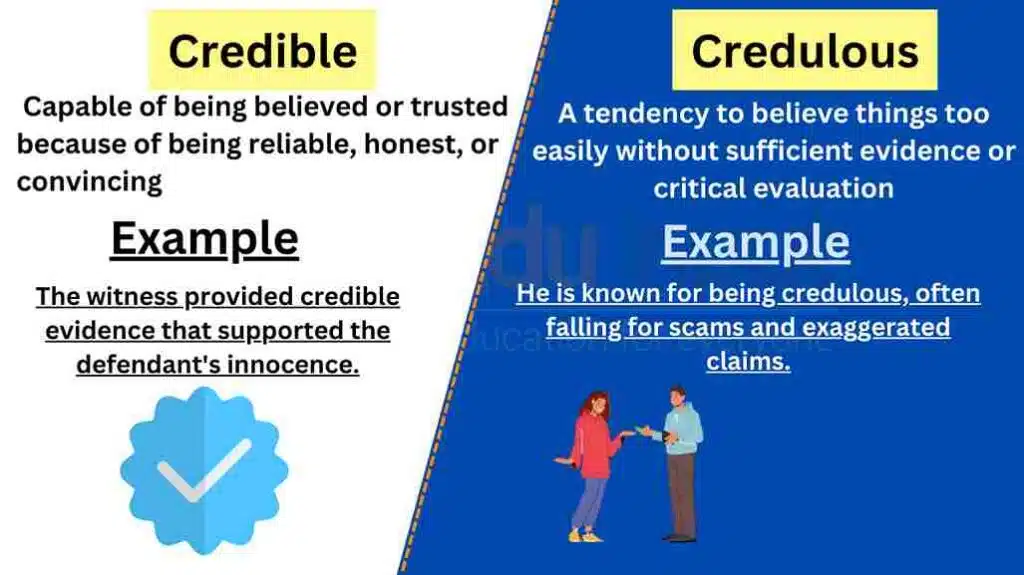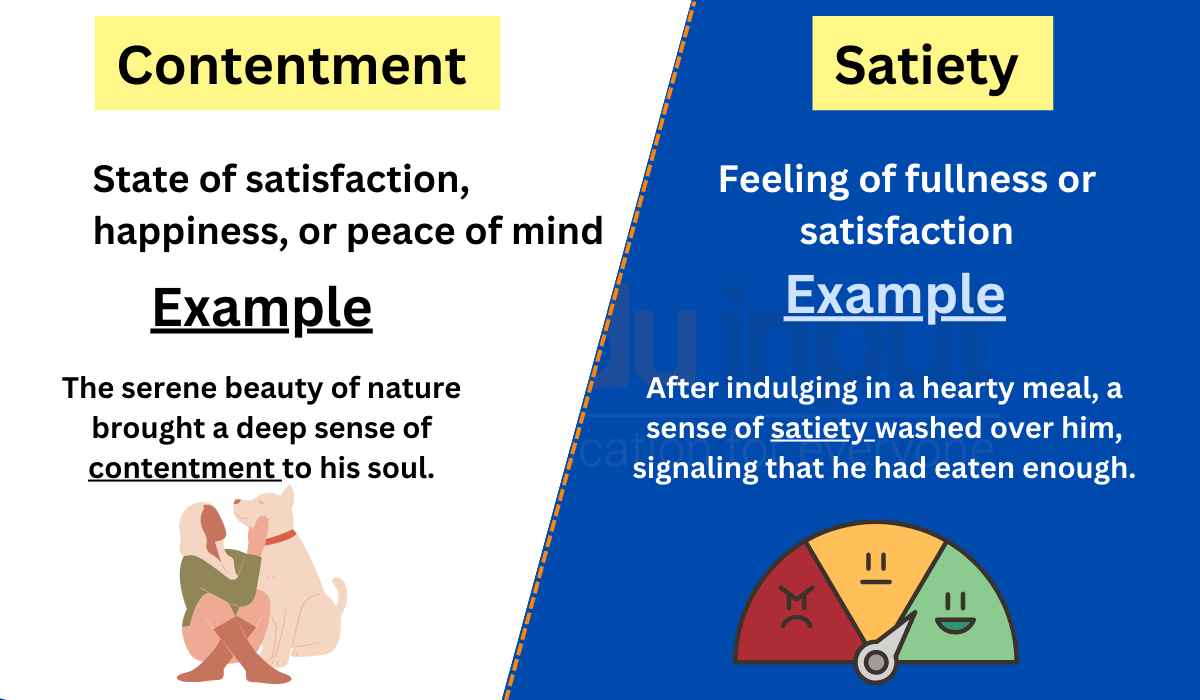Credible vs Credulous-Difference Between and Examples
In the realm of evaluating information and assessing people’s tendencies, the terms “credible” and “credulous” play important roles. While both words are related to trust and belief, they have distinct meanings and implications. In this article, we will explore the differences between “credible” and “credulous” to gain a better understanding of their nuances and how they are used in different contexts.
By clarifying that “credible” refers to something or someone worthy of belief or trust, while “credulous” refers to a tendency to believe things too easily without sufficient evidence, we can use these terms accurately and avoid confusion. Let’s delve into the contrasts between “credible” and “credulous.”

Meanings and Examples
Credible Meaning
Adjective: The meaning of Credible capable of being believed or trusted because of being reliable, honest, or convincing.
Credible Examples
- The witness provided credible evidence that supported the defendant’s innocence.
- The scientific study was conducted by reputable researchers and presented credible findings.
- The journalist’s articles are known for their credible sources and fact-checking.
- The company’s CEO gave a credible explanation for the recent financial performance.
- The website provides credible information backed by authoritative references.
Credulous Meaning
Adjective: The meaning of Credulous is a tendency to believe things too easily without sufficient evidence or critical evaluation.
Credulous Examples
- He is known for being credulous, often falling for scams and exaggerated claims.
- The marketing team targeted the credulous consumers who were easily swayed by misleading advertisements.
- Her credulous nature made her vulnerable to manipulation by those with ulterior motives.
- The con artist took advantage of the elderly woman’s credulous nature to deceive her.
- The young boy’s credulousness led him to believe in mythical creatures and magical stories.
Differences Between Credible and Credulous
| Criteria | Credible | Credulous |
| Meaning | Capable of being believed or trusted | Tendency to believe things too easily without sufficient evidence or critical evaluation |
| Part of Speech | Adjective | Adjective |
| Pronunciation | ˈkrɛdɪb(ə)l | ˈkrɛdʒʊləs |
| Usage | Evaluating trustworthiness and reliability | Describing a tendency to believe without evidence |
Usage in a Paragraph
The professor’s extensive research and publication record made him a credible source in the academic community. Students often sought his expertise and trusted his insights on various topics. However, in contrast, there were some students who displayed a more credulous nature. They readily accepted information without questioning its authenticity or seeking corroborating evidence. This credulous tendency sometimes led to misguided beliefs and reliance on unreliable sources. The professor encouraged critical thinking and taught his students to evaluate information carefully, promoting a healthy skepticism rather than blind acceptance.
Understanding the difference between “credible” and “credulous” is crucial for accurately assessing information and people’s tendencies towards belief. “Credible” refers to something or someone worthy of belief or trust due to reliability, honesty, or convincing evidence, while “credulous” describes a tendency to believe things too easily without sufficient evidence or critical evaluation. By utilizing these terms correctly, we can make informed judgments, evaluate sources, and encourage critical thinking, ultimately fostering a more discerning approach to information and beliefs.







Leave a Reply